-
About
- About Listly
- Community & Support
- Howto
- Chrome Extension
- Bookmarklet
- WordPress Plugin
- Listly Premium
- Privacy
- Terms
- DMCA Copyright
- © 2010-2025 Boomy Labs

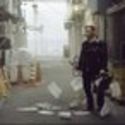 Chris Dancy
Chris Dancy
Listly by Chris Dancy
Big list of QS resources -- articles to apps to sensors and everything in between.
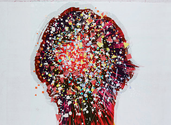
QS founder, Gary Wolf, explains the origins and promising potential of the self-tracking movement
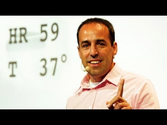
At TED@Cannes, Gary Wolf gives a 5-min intro to an intriguing new pastime: using mobile apps and always-on gadgets to track and analyze your body, mood, diet, spending -- just about everything in daily life you can measure -- in gloriously geeky detail. Journalist Gary Wolf spends his days in pursuit of the most fascinating things.
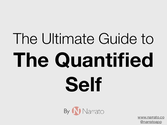
Narrato put together a easily-digestable presentation about what QS is, why people self-track, and some common tools to get started

BBC documentary about the growing self-monitoring revolution and its implications for our health

Helps groups of people with shared interests plan meetings and form offline clubs in local communities around the world about Quantified Self
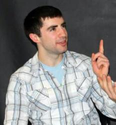
A transformation is happening. People, like you, are taking control of something conventional wisdom has told us is not ours to understand: our health. Why are we fat? What makes us feel sluggish? What causes our disease? How can I improve? Today, we ask our doctors. Tomorrow, we will ask our data.
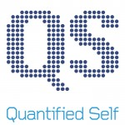
At the upcoming QS Conference (May 28-9, San Jose), Robin Barooah and I will run a session about self-experimentation. Alexandra Carmichael has asked me to write a post about how to do self-experimentation as a kind of encouragement to come to the session.
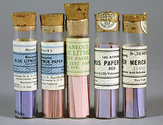
Like you I'm an avid self-experimenter, and I'm always on the lookout for things to change that will either a) improve me, or b) help me understand myself better so I can do a). I was comparing notes recently with Seth Roberts (his QS posts are here) about what experiments we've done, what processes we've used to do them, and what lessons we've learned from them.

Editor's note: Many readers of H+ are engaged in various types of self experimentation. Unfortunately many people doing these self experiments do not properly structure, log, or report their experimental results. This limits the usefulness of self experimentation to the wider Transhumanist community.
![The Value of Self-Experimentation [Plus: Extreme Videos - Do Not Try This At Home]](http://media.list.ly/production/40212/318496/header_11_185px.png)
The following is an excerpt from the appendices of The 4-Hour Body, which explores a common question: Can self-experimentation be valid at all, compared to placebo-controlled studies? As we shall see, self-experimentation need not be extreme (I do the extremes so you don't have to), and you can make significant discoveries with a sample size of one.
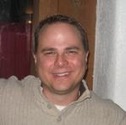
search here for different topics and watch some amazing people tell their stories for how they found meaning from their data
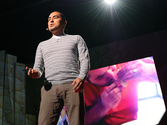
There are so many tiny, beautiful, funny, tragic moments in your life -- how are you going to remember them all? Director Cesar Kuriyama shoots one second of video every day as part of an ongoing project to collect all the special bits of his life.
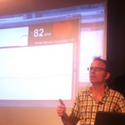
Ari cured himself of Crohn's disease by experimenting with some unusual supplements, nutrition and fitness regimens, and tracking every bit of it. Four years ago, Ari was diagnosed with Crohn's disease. After a couple of years of intense pain, sixteen pills a day, and yet another visit to the hospital, he decided to take control of his pain.
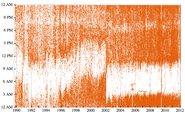
March 8, 2012 One day I'm sure everyone will routinely collect all sorts of data about themselves. But because I've been interested in data for a very long time, I started doing this long ago. I actually assumed lots of other people were doing it too, but apparently they were not.
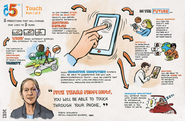
Digital taste buds. Touch through your phone. Computers that see and hear. IBM presents The 5 in 5 in five sensory categories, through innovations that will touch our lives and see us into the future.

The latest from Gary Wolf (@agaricus). Co-Host: The Quantified Self -- email: gary@aether.com. San Francisco

The latest from Kevin Kelly (@kevin2kelly). Senior Maverick at Wired, Cool Tools maven, author of What Technology Wants, True Films, and 1,000 True Fans. Pacifica, CA

The latest from Nicholas Felton (@feltron). Information designer and co-founder of http://Daytum.com. NYC
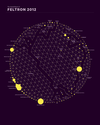
Please visit the shop to order print editions of the 2012 report. The contents of this report were gathered with a custom-built iPhone app called Reporter. At random intervals each day the app sent reminders to complete a survey. The results of these questions were saved alongside background measurements to form the basis of this document.
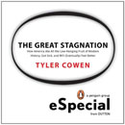
At Tsinghua this semester I am teaching academic writing. Almost all the students are seniors and almost all of them are applying to graduate school, so I spent several weeks on how to write a personal statement. Each student wrote a draft. I read each draft and made suggestions in one-on-one meetings.

The latest from Tim Ferriss (@tferriss). Author of three #1 NYT/WSJ bestsellers, The 4-Hour Workweek/Body/Chef. Japanophile, tea drinker, tango world record holder, language learning fanatic. Global
